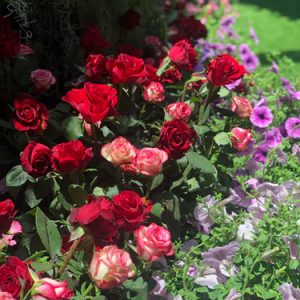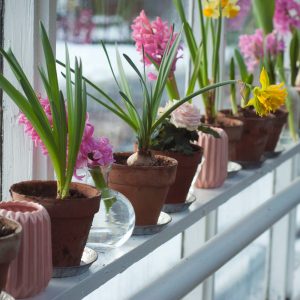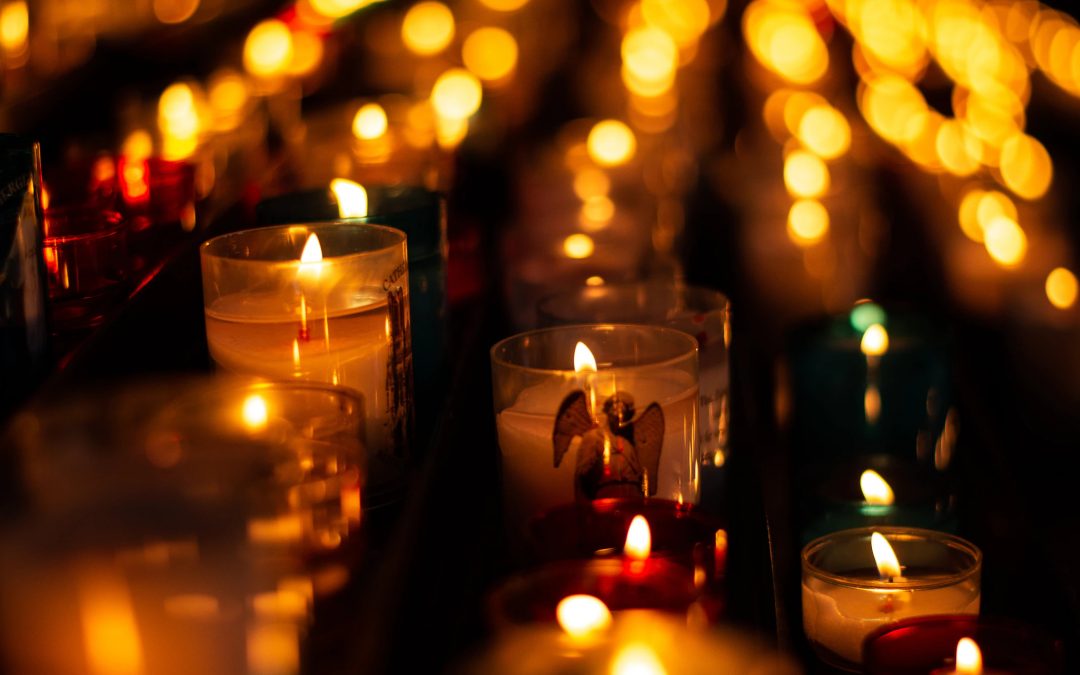by Rev. Dr. Linda Hartley, Assoc. Minister (Designated Term)
We have recently reached the one-year mark of our collective experience during the Covid-19 pandemic. And while this past year has affected each of us in different ways, we also share a common grief over what has transpired these past twelve months. Recently, we passed a very sad milestone in the U.S. with more than 500,000 Covid-related deaths. Additionally, more than 28 million people have been infected in this country alone. In Rhode Island more than 126,00 people have been infected, and to date over 2,500 people have died from Covid-19 – this in a state with just over one million residents.
While statistics tell part of the story, we know that these numbers represent individuals whose deaths have affected families and communities. Many of us know someone who has died from Covid, or we know a family who has lost a loved one to Covid. Many of us know someone who has been ill with Covid and recovered, some of us have been ill ourselves with Covid and recovered. We may also know individuals who have recovered from the initial illness only to be struggling with the after-effects of the disease. And beyond this loss of life and health are those individuals who have lost jobs, and families who have lost financial security. We also know that the pandemic has taken a toll on our emotional and mental health as we have dealt with the strain of isolation. After a year of navigating all we’ve had to deal with, many of us have found that “pandemic fatigue” is a very real experience that affects our daily functioning.
How this pandemic and the losses associated with it will affect us individually and as a country in the years ahead has yet to be seen. And while we welcome the good news of effective vaccines and look forward to the day when things get back to “normal,” we are still living with so many unknowns. For many of us, this land of “unknowing” is a rather uncomfortable place to be. It can feel like we’ve traveled to a place where we don’t understand the customs very well, and the language is confusing. We may have finally navigated how to wear a face mask without having our glasses fog up, but now find that navigating websites for vaccination appointments is a whole new dilemma. And while we live with the hope of getting back together with family and friends, we may be feeling some degree of anxiety about being in large groups of people once again.
us individually and as a country in the years ahead has yet to be seen. And while we welcome the good news of effective vaccines and look forward to the day when things get back to “normal,” we are still living with so many unknowns. For many of us, this land of “unknowing” is a rather uncomfortable place to be. It can feel like we’ve traveled to a place where we don’t understand the customs very well, and the language is confusing. We may have finally navigated how to wear a face mask without having our glasses fog up, but now find that navigating websites for vaccination appointments is a whole new dilemma. And while we live with the hope of getting back together with family and friends, we may be feeling some degree of anxiety about being in large groups of people once again.
So you may be asking, “where is hope in this?” As people of faith, we have hope. We hold on to God’s promises that our future is one with hope – that this is what God wants for us, that this is what God is holding out to us. And yet this year, we have shed so may tears. We may feel at a loss about how to find and hold onto our hope in a new day, in a day of rebirth. We may be finding it difficult to see this new day through eyes blurred with tears.
Several years ago, during a time when I was dealing with a very sad situation in my life, a minister shared with me a beautiful image. As I was trying hard not to tear up after a worship service, he cupped his hands together in front of him and offered me these words: “I believe God gathers up our tears and uses them to make a garden bloom for us.”
In his words I saw the first new shoots of hope taking root in my heart. I had the first realization that what I was feeling then was not the end of the story. Just as the early spring  rains water the flowers and plants that will bloom and thrive in the summer, so too my own season of sadness would pass, and a new season of renewal would come. I could trust that God was preparing the ground for this new season, holding the seeds of growth until I was ready to till that soil and see the promises of God come into bloom.
rains water the flowers and plants that will bloom and thrive in the summer, so too my own season of sadness would pass, and a new season of renewal would come. I could trust that God was preparing the ground for this new season, holding the seeds of growth until I was ready to till that soil and see the promises of God come into bloom.
For those of you who are ardent gardeners, you are probably starting to look through the seed and garden catalogues that arrive in the mail this time of year. In the waning days of winter, we look forward with anticipation of new plantings and new flowers which will thrive in the warm sunshine of the season to come. There is an optimism to gardening, a faith that with good seed, good rains, good sun, and our own good efforts, we will enjoy the beauty and bounty of nature. It is an optimism borne of experience and faith. We may not see it in terms of what we might refer to as religious faith, but it is faith, nonetheless. And it is an apt metaphor for our hope as we emerge from this past year with faith in a brighter season to come.
Gardening, or agricultural, metaphors are abundant in the Bible as a means of expressing hopefulness and faith. We recall Jesus’ words that if we have faith only the size of a mustard seed, we can move mountains (Matt. 17:20). If that feels daunting to you right now, consider the words of Psalm 126, written as a prayer of encouragement to a people still living in captivity in Babylon. It’s a prayer that anticipates the day they will be able to return to Jerusalem, the day when their tears will turn into thanksgiving. The Psalm reads in part:
May those who sow in tears
reap with shouts of joy.
Those who go out weeping,
bearing the seed for sowing,
Shall come home with shouts of joy,
carrying their sheaves. (Psalm 126:5-6 NRSV)
Much as the words my minister spoke to me, the psalmist anticipates the day that the people’s tears will water the seeds of hope that they still hold onto so tightly, and that these seeds will not just grow, but will produce an abundant harvest – the sheaves of wheat – that will feed them, that they may flourish. Just like us in this in-between time, as we await the day when enough of us are vaccinated that we can venture out again in safety, so too the people of Israel were awaiting the day that they could return. As we await that day, and remember all we have experienced this past year, may we too do so with faith that our tears have not been in vain, but are being held by our God for the day when we will see the beautiful garden God is preparing for us even now. It will be a new garden grown from the seeds of hope and faith we hold now, and watered by our communal experience. As with all gardeners, we do not know now exactly what it will look like, but what we do know is that our God will be with us still, helping us to see the new sprouts taking hold and flourishing.
they still hold onto so tightly, and that these seeds will not just grow, but will produce an abundant harvest – the sheaves of wheat – that will feed them, that they may flourish. Just like us in this in-between time, as we await the day when enough of us are vaccinated that we can venture out again in safety, so too the people of Israel were awaiting the day that they could return. As we await that day, and remember all we have experienced this past year, may we too do so with faith that our tears have not been in vain, but are being held by our God for the day when we will see the beautiful garden God is preparing for us even now. It will be a new garden grown from the seeds of hope and faith we hold now, and watered by our communal experience. As with all gardeners, we do not know now exactly what it will look like, but what we do know is that our God will be with us still, helping us to see the new sprouts taking hold and flourishing.



